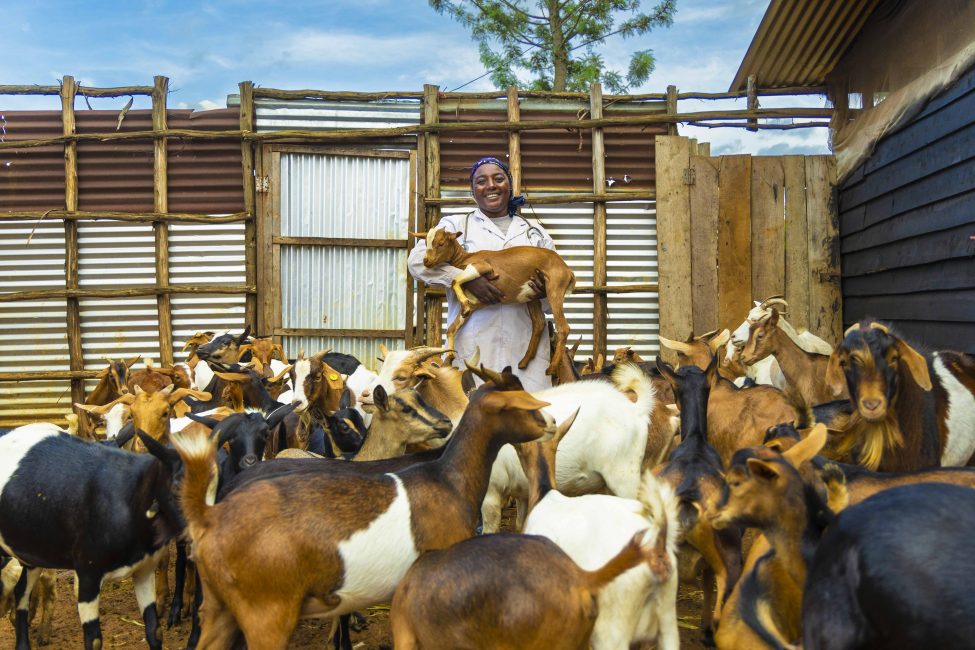Our teams in South Kivu first got to know Safi Ngomora, better known as “Dr Safi”, just over four years ago. At the time, this mainly agro-pastoral region had been suffering from a lack of investment in animal health for many years. The high livestock mortality rate and recurrent diseases among the herds had become something of a foregone conclusion.
Working near Katana, the region where she grew up, Dr Safi was already fighting to reverse the trend, although she was overwhelmed by a lack of resources. From the very first time we met, we were struck by her strong will and enthusiasm. This marked the beginning of a fantastic partnership, which we look back on this month as part of our celebration of women.
Being a vet: a childhood dream
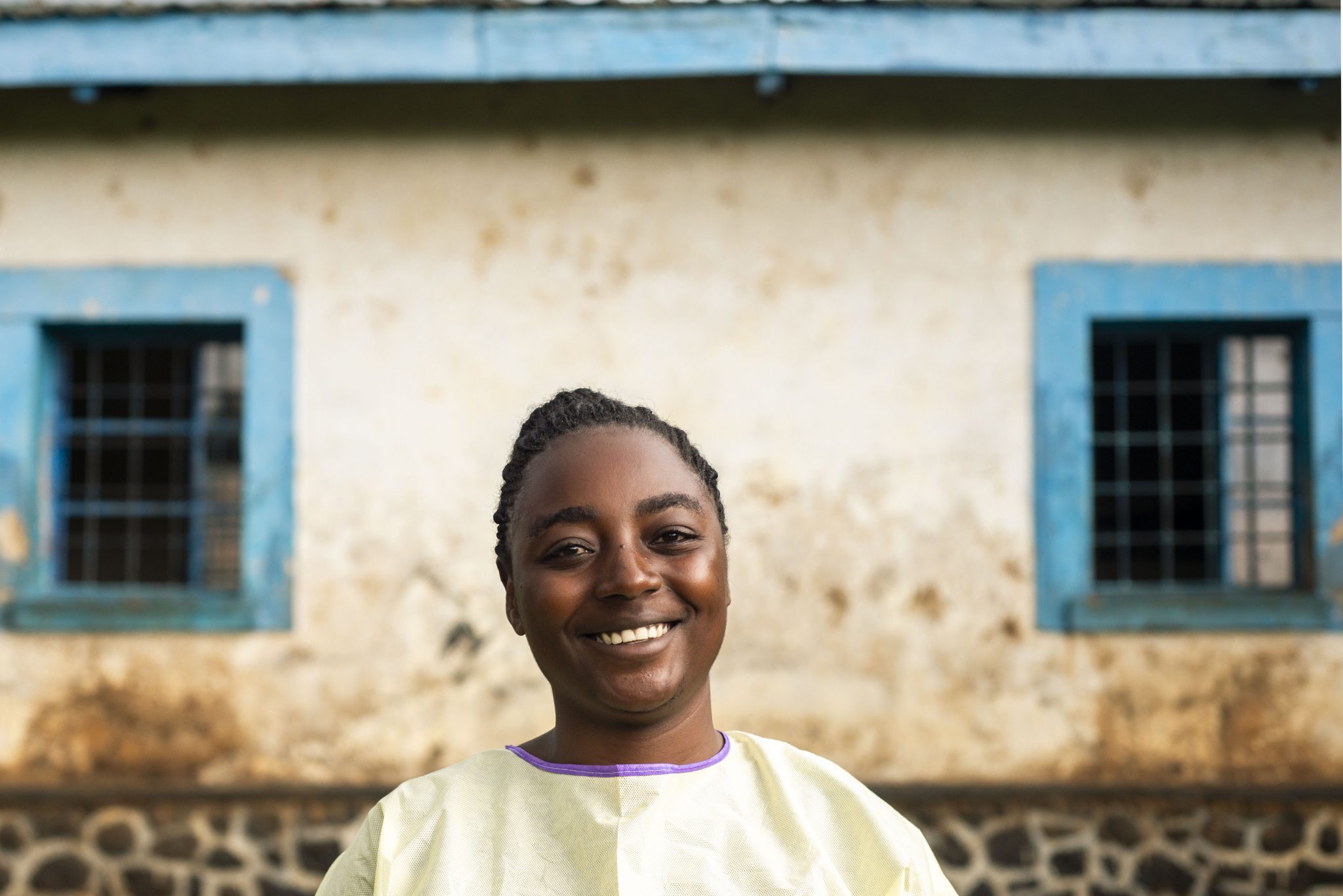
At the age of just 31, Dr Safi leads an impressive network of community workers and treats thousands of animals in South Kivu, thanks to the support of Vétérinaires Sans Frontières. © Arlette Bashizi
“I’ve dreamed of being a vet since I was a child. I’ve always loved being around animals. When I saw goats or chickens die in my village, it made me feel sick to my stomach. I wondered how they could be cared for and how to give the livestock keepers a better life,” the young woman explains. So when a veterinary school opened in Katana, a stone’s throw from her home, it was an easy choice to make. Safi decided to go for it.
Among the 32 students who enrolled in the first year, there were only four girls. Six years later, she would be the only woman to graduate. Now in her thirties, Safi Ngomora continues to be an exception in the field of animal health care in eastern Congo: South Kivu province has just four female vets, compared to dozens of men.
Although it is uncommon for women to become vets in the Democratic Republic of Congo, she believes that the idea is well accepted in general. “People often congratulate me,” she adds. So how can this gender imbalance be explained? “It’s a job that requires a lot of commitment and sacrifice,” she continues. It’s also a very different path in life to the one that girls in the region traditionally take. “Most girls here are in a hurry to get married by the age of 16 or 20,” Safi points out. Instability in the region also discourages women from participating in professional life. “Most of the time, I work alone. I get on my motorbike, and I may have to ride miles down isolated roads to get to a sick animal. Women are much more exposed to rape here because of the insecurity. Before I leave, I always check to be sure that the situation is calm where I’m going.” This habit has saved her a lot of trouble up to now, but it is far from infallible.
From village vet to businesswoman
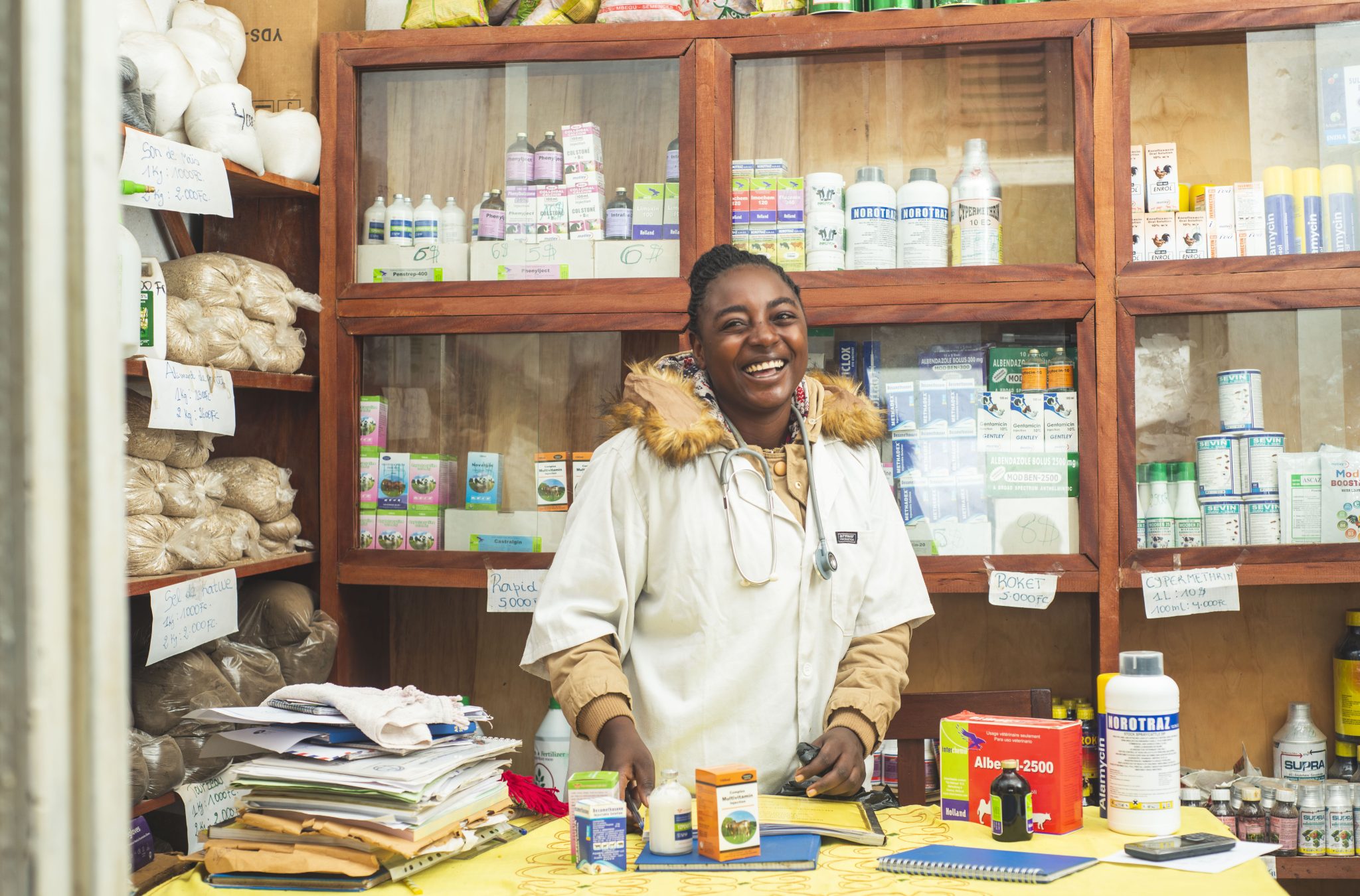
Dr Safi in her veterinary pharmacy, which she rented in the centre of Katana. Today, the young woman has her own veterinary practice. © Arlette Bahizi
Towards the end of her studies, Safi was spotted by APDIK, a local association that supports livestock keepers (and a partner of Vétérinaires Sans Frontières Belgium). Thanks to APDIK, she was able to take several training courses and obtain a loan to buy veterinary products, so that she could start caring for animals in her village. However, only a few livestock keepers were inclined to ask for her help. She did not have many animals to care for and struggled to pay off her loan.
It was then, in 2019, that she came across Vétérinaires Sans Frontières Belgium. This marked a decisive turning point in the young graduate’s career. “Without the support of Vétérinaires Sans Frontières Belgium, I would probably have remained a village vet. I would never have made a name for myself. If I have become a fighter, a woman who can face up to difficulties, it is thanks to the support of Vétérinaires Sans Frontières Belgium,” she tells us gratefully.
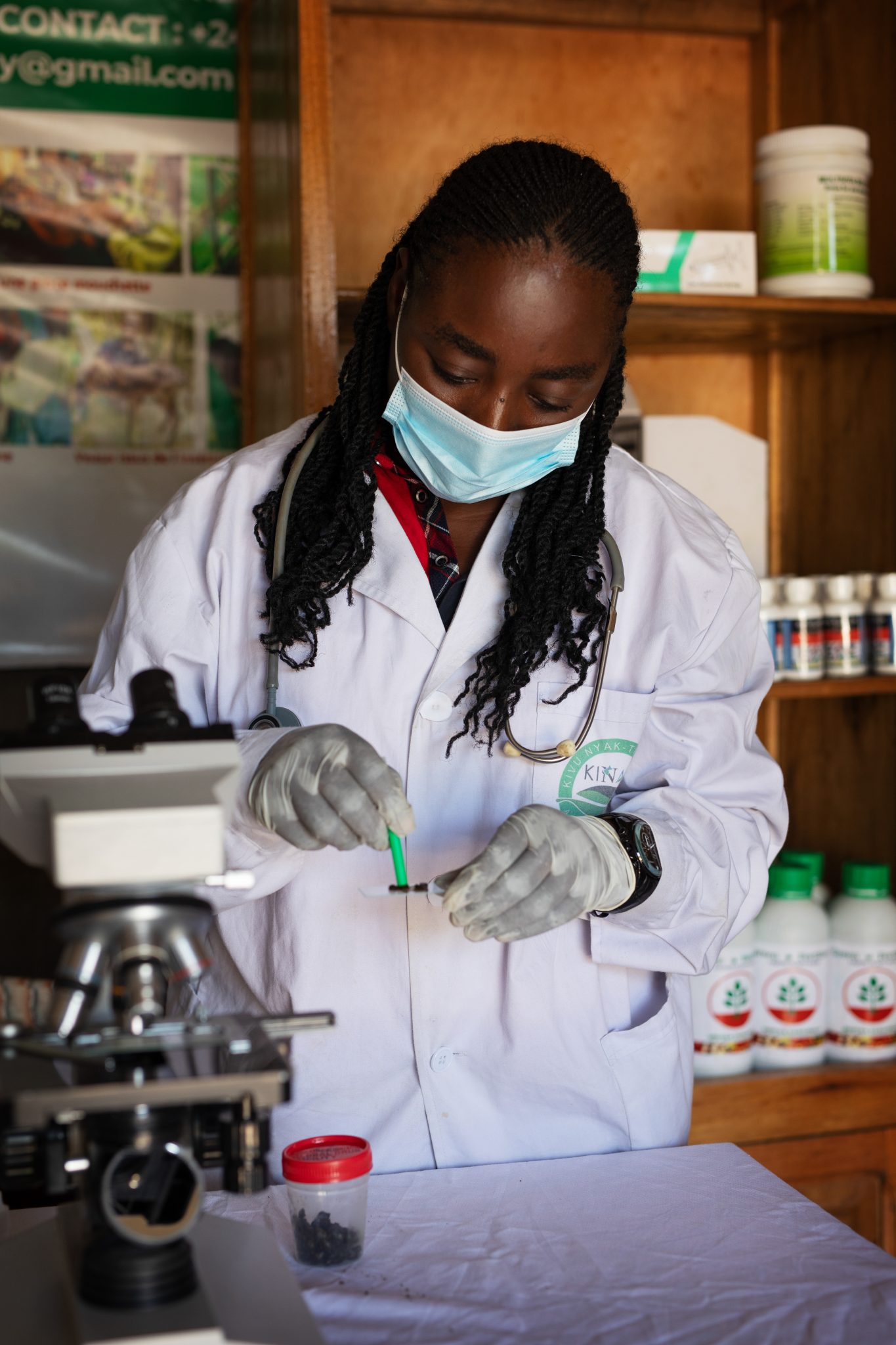
Since 2023, Dr Safi’s practice has been equipped with laboratory equipment, supplied by Vétérinaires Sans Frontières, for better diagnosis of animal diseases. An exception in the region. © Thomas Cytrynowicz
Her life soon stepped up a gear: she took various training courses, including ones in accounting and marketing, awareness raising and even artificial insemination. She soon found herself at the head of a network of several community animal health workers, whom she trained in basic care, and she leased a dispensary in the centre of Katana. She also received a motorcycle to help her get around more easily, so she was able to serve an increasingly large territory in Kabare. She began to earn a better and better living. A year ago, she set up her own veterinary practice in Katana and received lab equipment to help her identify parasites. “It helps me a lot to decide on the precise treatment needed. I am the first vet in the region to have a mini laboratory like this.”
Today, Dr Safi is renowned far beyond the borders of Katana. With her 72 animal health workers, she even covers the neighbouring Kalehe region, whose highlands are home to the majority of the region’s livestock. In 2023 alone, her customer list included more than 3500 livestock keepers, almost 28,000 cattle and 100,000 sheep and goats. She also receives many offers for partnerships, whether from other international aid organisations or universities.
“If our animals die, it’s no longer due to inappropriate treatment.”
Another impressive finding is the decrease in animal mortality since Dr Ngomora started work. She has been keeping annual records of mortality levels on her computer since 2017. In that year, she recorded more than 88,900 animal deaths. In 2023, this figure is down to 1,224. She believes that this enormous difference is due to the approach based on local private veterinary services (LPVS), developed by Vétérinaires Sans Frontières Belgium, which she has adopted. This system relies on a network of animal health workers. They are trained members of the livestock-keeping communities, who are supervised by a vet.
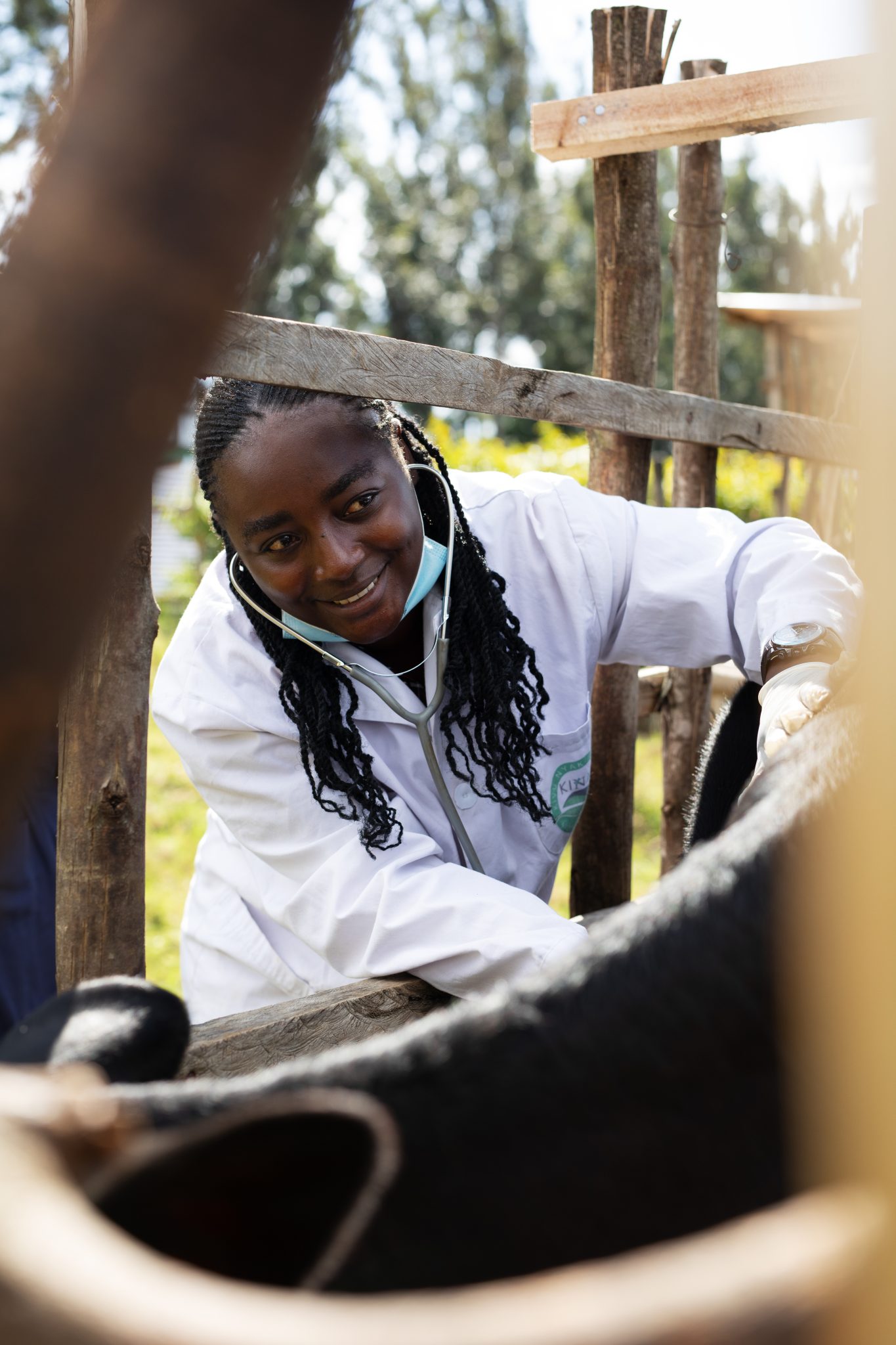
Dr Safi regularly goes out into the field, from Kabare to Kalehe, to treat the animals of her many clients. © Thomas Cytrynowicz
When asked what the NGO contributes to improving animal health in South Kivu, her response is swift: “Apart from Vétérinaires Sans Frontières Belgium, there is no other organisation specialised in animal health and livestock keeping here.” She believes that the strengths of the LPVS approach reside in a combination of disease surveillance, early detection and adequate treatment. The NGO’s awareness-raising work with livestock keepers is also essential: “The livestock keepers are finally beginning to understand the importance of taking care of their animals’ health. Despite their vulnerability, they are willing to pay for it. Even if they only have a couple of dollars, we agree to give them a special rate. It’s symbolic, but we take heart from it.”
“If our animals die, it’s no longer due to inappropriate treatment,” she continues. “It’s because they have diseases that require vaccines. Unfortunately, the livestock keepers are not always able to pay at the right time to meet the vaccination schedule.” This is why Vétérinaires Sans Frontières Belgium regularly organises vaccination campaigns, but the needs are enormous, and it is difficult to vaccinate all the livestock.
A future thanks to veterinary medicine
Even though the situation has improved considerably, there are still many challenges. The work is never done for the vet and her team of animal health workers. “South Kivu is an agro-pastoral region. There is no shortage of animals to care for, but small livestock keepers do not have the means to take care of them properly. We also lack the resources to go and help them in emergencies. Another problem is that there are no veterinary clinics or veterinary laboratories in the region.” She is also in favour of extending the LPVS network: “We need to set up other local practices in villages that are not covered, especially in Kalehe and beyond.”
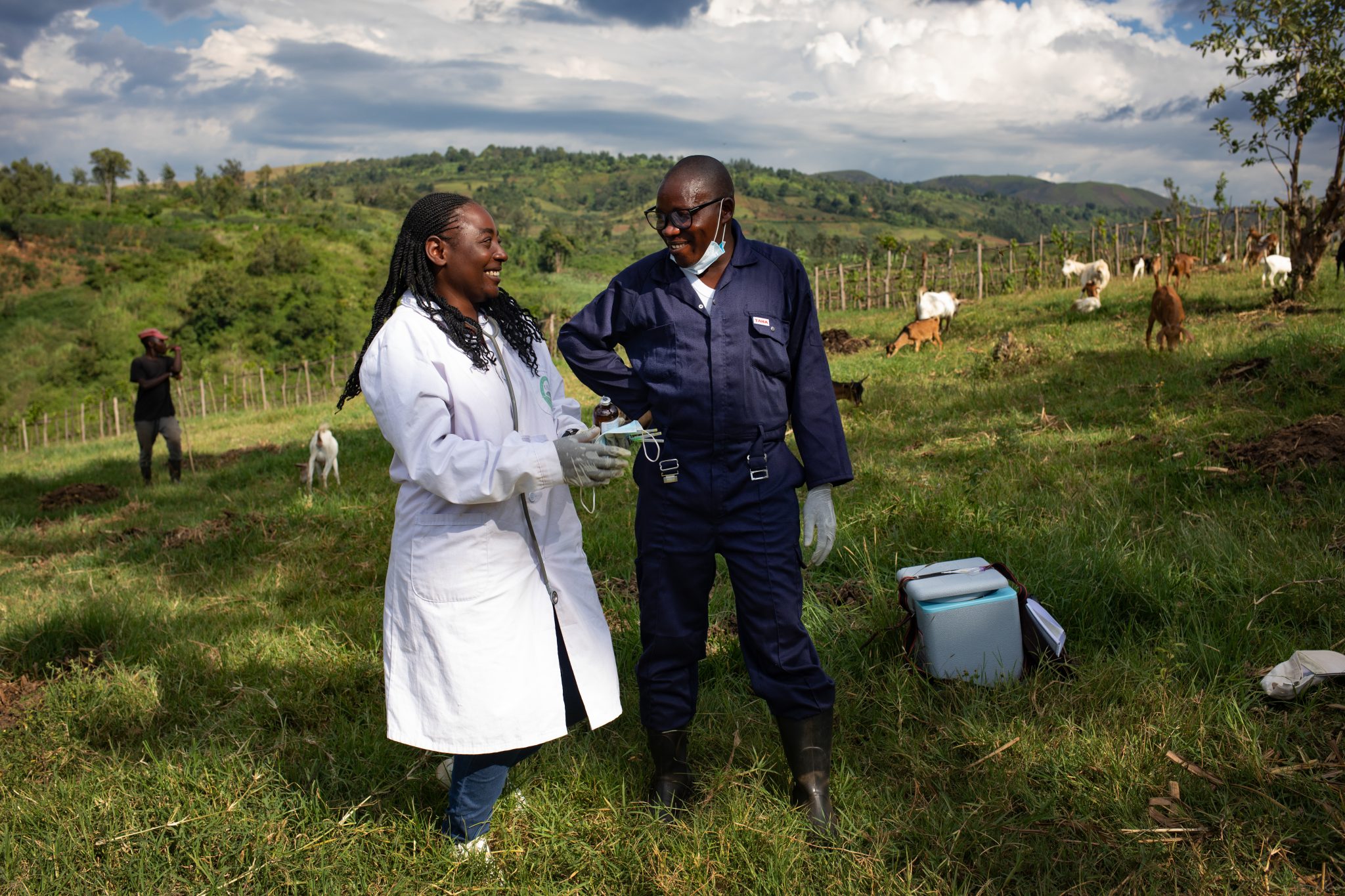
Dr Safi and her colleague Donatien Muntuokwindi, two private vets supported by Vétérinaires Sans Frontières, prepare to examine the livestock of a farmer in the Katana region © Thomas Cytynowicz
All the same, it takes more than this to dampen the vet’s enthusiasm. Far from being discouraged, Safi has her sights firmly set on the future. And she is thinking big: “If I can find the means, I would like to open a veterinary clinic at provincial level, because that’s something we really need. We could have partnerships with experienced laboratories to identify certain diseases better and develop more effective treatments.”
The young Congolese woman is also counting on the next generation, women in particular: “I would like to appeal to all Congolese girls: study veterinary medicine! There is plenty of space for you and the needs are enormous.” As she sees it, becoming a vet guarantees financial independence, which is still too uncommon for women in her region: “If you do these studies, you won’t have to look for work – it will find you. There are business prospects and a future. Really, don’t hesitate!”

